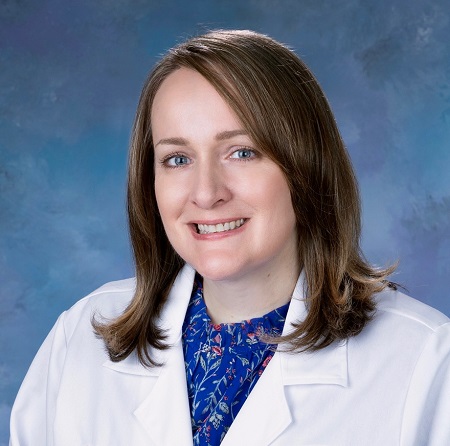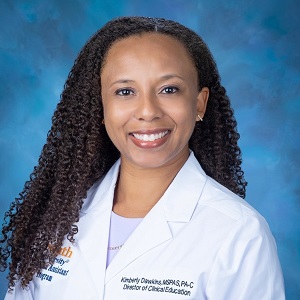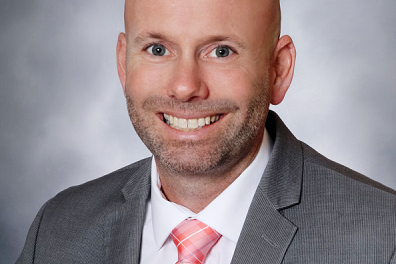By Monique Jaquith, DMSc, PA-C, and Kimberly Dawkins, DMSc, PA-C
By providing opportunities that foster cultural humility and awareness, future healthcare providers can deliver care that addresses disparities and responds to the needs of underserved populations. Therefore, it is important for medical education programs to address healthcare inequities in vulnerable populations such as underserved black-American, AAPI, and Hispanic communities, religious minorities, LGBTQ+ persons, persons with disabilities, persons who live in rural areas, and persons affected by persistent poverty. Community engagement is a crucial component of this training, as it allows students to gain diverse perspectives and learn effective communication skills within the community we reside, ultimately furthering empathy and compassion, which are essential qualities for any competent healthcare professional.

Monique Jaquith
Healthcare inequities can arise from unconscious bias, leading providers to provide care based on age, gender, sexuality, disability, and race. Exposure to various experiences through volunteerism, classroom education, exposure to an array of clinical settings, and community outreach projects leads to an increased sense of self-awareness and an increased ability to provide culturally sensitive care.
Educating Physician Assistant (PA) students about healthcare inequalities and providing culturally sensitive healthcare is integrated throughout the curriculum at South University. Medical Interviewing and Documentation teaches students how to conduct medical interviews emphasizing cultural sensitivity, empathy, and compassion. As part of PA curriculum, participants learn how healthcare disparities and major historical violations in medical ethical standards have impacted healthcare for different cultural groups. PA students take a Special Populations course that prioritizes how to care for vulnerable populations such as geriatrics, persons with disabilities, persons affected by persistent poverty, and LGBTQ+ individuals. This course is a series that includes a cultural competency certificate through a partnership with Compass Community Center, an LGBTQ+ community center.

Kimberly Dawkins
Exposure to real-life experiences outside the classroom enhances the curriculum within the classroom. Though the Applied Learning Experience course, students gain clinical experience and apply what they learn in the classroom during the didactic year. They rotate through various clinical sites where the students get exposure to individuals affected by healthcare disparities. The course also includes activities, such as assisting low-income families with back-to-school needs by participating in a Back-to-School Fair.
Community engagement through volunteerism is integral to PA education and cultivating cultural humility. Students participate in culturally specific events such as the annual diversity potluck, where they bring a dish representative of their culture. Students promote inclusion and awareness of individuals with disabilities by participating in the Special Olympics. In addition, students glean vegetables for donation to the food bank and sponsor families in need for the holidays.
Capstone projects are required for students to graduate. As part of this project, students assess the needs of a community partner and develop a plan to help them reach their goals. Some of the needs our students have addressed through their community partners include food insecurity, language barriers, access to medical education, and access to medical care. Students present a poster at the end of the project and reflect on how they impacted on the community. As a result of combining these activities, empathy, and compassion towards those in need are enhanced, and awareness of healthcare inequities is developed.
Addressing healthcare inequities is one of the most important goals of medical education programs. Health outcomes for vulnerable populations can be improved by incorporating community outreach experiences during didactic education. Providing opportunities that foster cultural humility and awareness, PA programs aim to address healthcare disparities and meet the needs of underserved populations.
Monique Jaquith is Director of Admissions and Kimberly Dawkins is Director of Clinical Education, South University WPB PA Program.




























